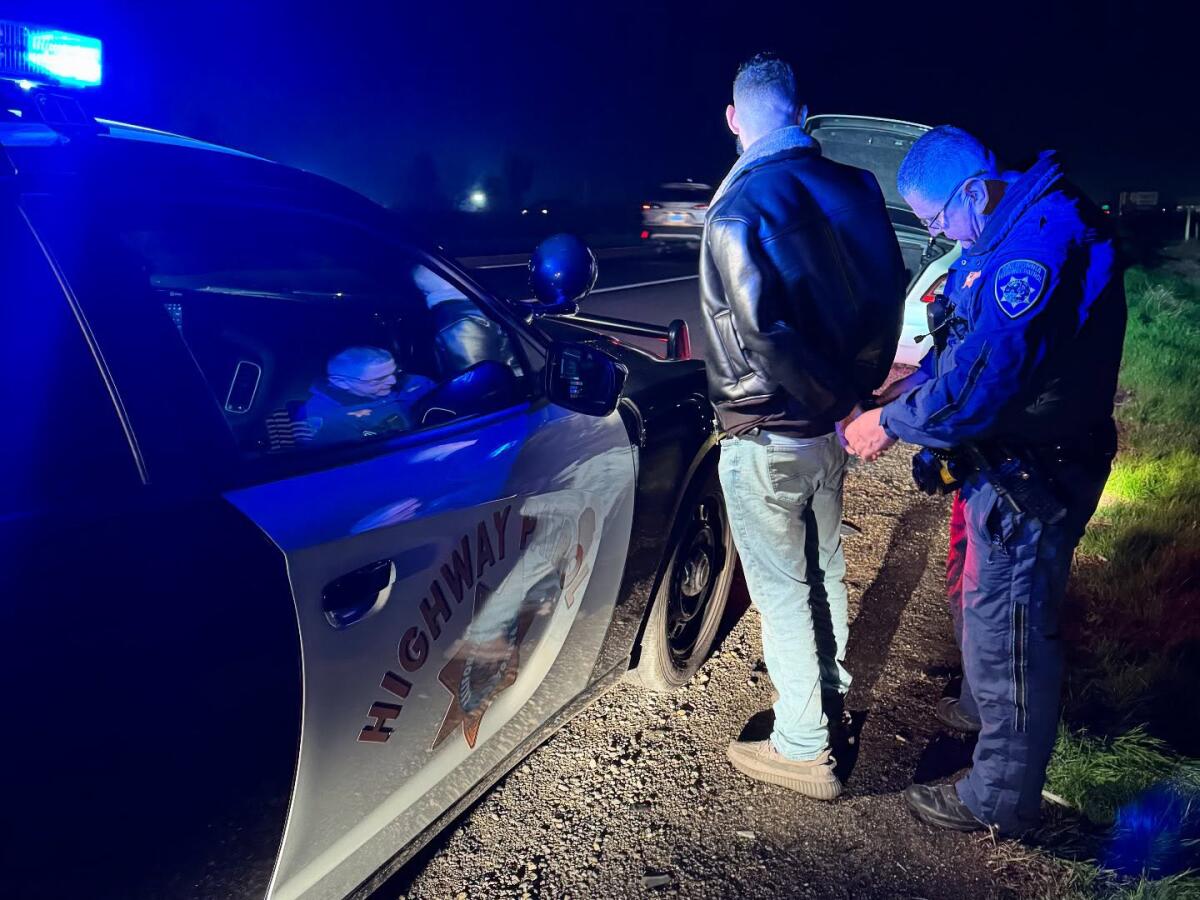Spider monkey found in Rolls-Royce during traffic stop in critical shape. Now come tests, treatment — and a name

A baby spider monkey discovered by the California Highway Patrol this week is in critical condition — suffering from malnourishment, skin and coat issues and an upper respiratory infection. But the Oakland Zoo is hopeful that the plucky young primate will make a full recovery.
The baby monkey is being housed in a humid environment to help treat her upper respiratory infection and has been given fluids and a proper diet, according to zoo officials.
Veterinarians are running tests to determine whether her skin condition is due to malnutrition or an infection. And on Saturday, she will undergo an anesthetic procedure and examination to fully assess her health and check whether she is suffering from low bone density because of malnutrition.
“The veterinary staff consider her a critical case but are hopeful for her recovery,” officials wrote in an update on the creature.
It is illegal to own primates as pets in the state of California and the poor condition of the young spider monkey is a prime example of why, zoo officials said.
“Primate infants, like this spider monkey, are being poached from the wild, and most don’t live to see their first birthday due to inhumane care as pets,” the Oakland Zoo said in a statement, adding that even owners with the best intentions are not qualified to cater to the complex needs of exotic and wild animals housed as pets.
CHP officers discovered the monkey during a bizarre traffic stop in Madera County on Monday night.
Officers pulled over a Rolls-Royce Ghost speeding north on Highway 99 and were stunned to find a small monkey wearing a onesie inside — as well as copious amounts of marijuana and five cellphones.
The driver was arrested on suspicion of driving under the influence, possession of an exotic animal and possession of cannabis for sale. The California Department of Fish and Wildlife sent the monkey to the Oakland Zoo for urgent treatment and rehabilitation.

Once the monkey is fully recovered, the zoo will work with the Department of Fish and Wildlife and the Wildlife Confiscations Network to find her a home in an accredited zoo or sanctuary, where she can grow up in a troop of other spider monkeys.
The zoo estimates that the monkey is 5 or 6 months old. Staff are still trying to figure out the right name for her, which will pay homage to her species and homeland.
Spider monkeys are an endangered species and come from the rain forests of Central and South America, stretching from Mexico to Bolivia. The poaching and black market trade of these monkeys poses a serious threat to their survival, according to the zoo.
“Wildlife trafficking is a conservation crisis, driving countless animals toward extinction,” Nik Dehejia, the Oakland Zoo’s chief executive, said in a statement. “Innocent creatures suffer, torn from their natural habitats and family groups, only to be exploited for entertainment, personal enjoyment or profit.”

In the wild, baby spider monkeys are nursed by their mother for the first two years of their life, said California Department of Fish and Wildlife Capt. Nathan Smith. Illegal pet owners often underestimate their need for milk and instead give them inappropriate solid foods, he said.
Unfortunately, the illegal pet trade is growing in California and across the nation, he added.
The Oakland Zoo has received more than 100 requests to rescue and care for victims of wildlife trafficking since 2021, officials said. This includes providing care for lions, tigers, gibbons, macaws, chimpanzees, parrots, goats, sheep, rabbits and reptiles, among other creatures.
More to Read
Sign up for Essential California
The most important California stories and recommendations in your inbox every morning.
You may occasionally receive promotional content from the Los Angeles Times.











